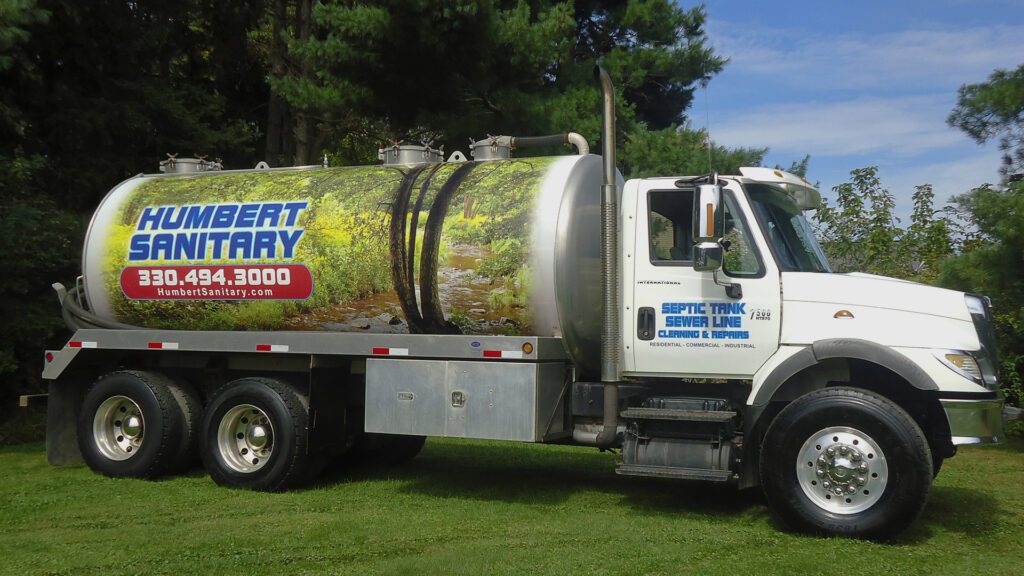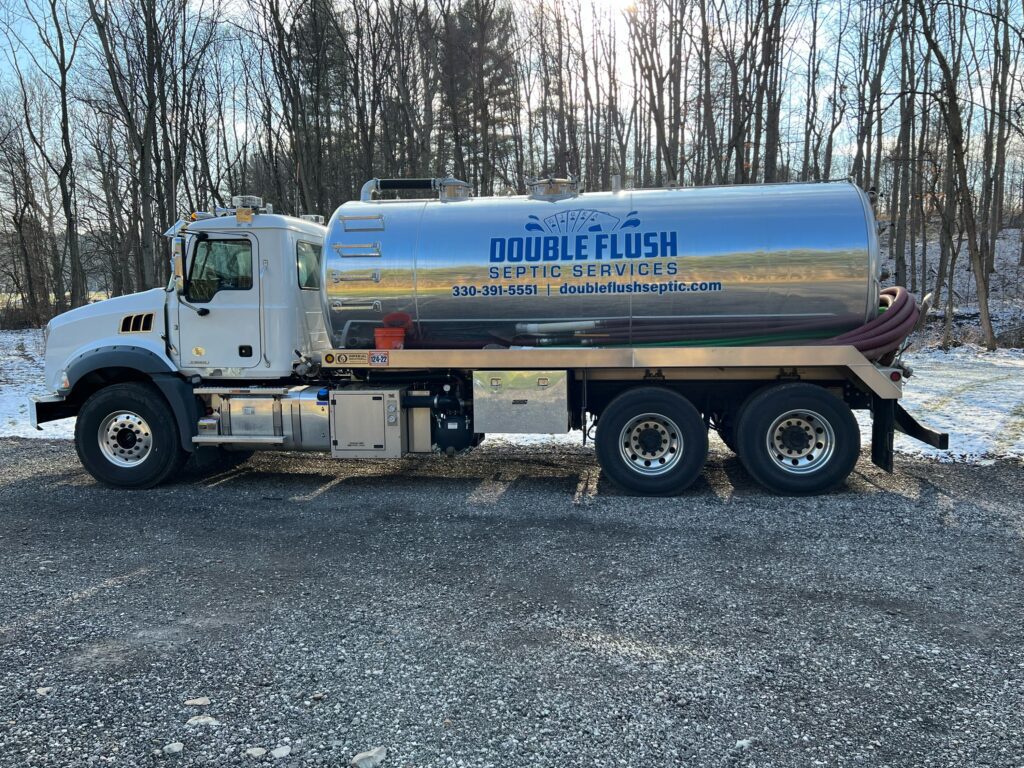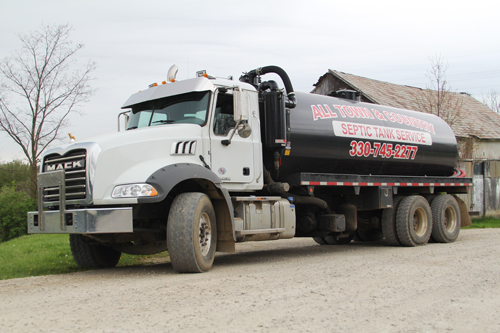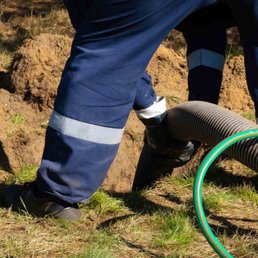In need of professional septic tank cleaning services in Canton, Ohio? Look no further! This article will provide you with expert solutions for proper waste disposal. Septic tank maintenance is essential to ensure the longevity and functionality of your system, as well as the protection of the environment and public health. By following these expert tips, you can avoid costly repairs and keep your septic system running smoothly. Discover the importance of regular septic tank cleaning, signs that indicate it’s time for a cleaning, and the best practices for proper waste disposal. Get ready to maintain a healthy and efficient septic system with the help of this informative article.
The Importance of Septic Tank Cleaning
Preventing System Failure
Owning a septic tank system comes with the responsibility of maintaining it properly. Regular septic tank cleaning is crucial for preventing system failure. Over time, solid waste and sludge accumulate in the tank, which can lead to clogs and blockages in the pipes. Without proper cleaning, these issues can escalate and result in a complete system failure. By regularly cleaning your septic tank, you can ensure the optimal functioning of the system and avoid costly repairs.
Protecting Public Health
Another essential reason for septic tank cleaning is to protect public health. A neglected and overflowing septic tank can contaminate the groundwater and nearby water sources, posing a significant risk to both humans and the environment. Harmful bacteria and pathogens present in the wastewater can find their way into drinking water sources, leading to potential outbreaks of diseases. By regularly cleaning and maintaining your septic tank, you contribute to safeguarding public health and the well-being of your community.
Maintaining Property Value
Your property’s value can be significantly affected by the condition of your septic tank. A well-maintained septic system is essential for preserving property value. Potential buyers are more likely to be interested in a property with a properly functioning septic system that has been regularly cleaned and maintained. On the other hand, a neglected or faulty septic tank can lead to problems during property inspections and can even decrease the overall value of your home. By prioritizing septic tank cleaning, you are ensuring that your property retains its value and remains attractive to potential buyers.
Understanding the Septic Tank System
Components of a Septic Tank System
To comprehend the importance and process of septic tank cleaning, it is essential to understand the components of a septic tank system. A typical septic tank system consists of three main components: the septic tank, the drain field, and the soil.
The septic tank is typically made of concrete or fiberglass and serves as a primary storage system for wastewater. It separates solid waste from liquids and allows anaerobic bacteria to decompose the waste.
The drain field is a network of perforated pipes or chambers buried in the soil. It receives wastewater from the septic tank and allows it to disperse slowly into the ground, where it is further treated and filtered.
The soil acts as a natural filter, removing contaminants from the wastewater before it enters groundwater or nearby water sources.
How the System Works
Understanding how the septic tank system works can help you appreciate the importance of regular cleaning. When wastewater from your home enters the septic tank, solid waste settles to the bottom, forming a layer of sludge. Oil and grease float to the top, creating a scum layer. The liquid portion, known as effluent, flows out of the tank into the drain field.
The anaerobic bacteria in the septic tank break down the solid waste, converting it into gases and a partially treated liquid. However, over time, the sludge and scum layers increase, reducing the available space in the tank and impeding the treatment process. This is why regular cleaning is necessary to remove the accumulated sludge and maintain the system’s efficiency.

Signs of a Full or Failing Septic Tank
Slow Drains and Backups
One of the telltale signs that your septic tank needs cleaning is slow drains or frequent backups in your plumbing fixtures. When the septic tank is full and at capacity, it cannot properly handle the wastewater from your home. As a result, drains may take longer to empty, and you may experience backups in your toilets, sinks, or showers. Ignoring these signs can lead to more significant issues, such as sewage backups in your home or damage to your plumbing system.
Foul Odors
If you begin to notice foul odors emanating from your drains, toilets, or yard, it may be an indication that your septic tank is overdue for cleaning. The buildup of organic matter and sludge in the tank can produce unpleasant smells that permeate through your plumbing system and even outside in your yard. These odors can be not only bothersome but also a sign of potential health hazards. Prompt septic tank cleaning can eliminate the source of these odors and ensure a fresh and clean environment.
Lush and Green Grass over the Septic Tank Area
While having a well-maintained lawn is desirable, an unusually lush and green area over the septic tank may be a sign of a problem. When a septic tank is full or failing, it can leak nutrients and wastewater, enriching the soil in that area. This excess nutrient supply can cause the grass to grow more vigorously, leading to a patch of vibrant green grass compared to the surrounding areas. If you notice this anomaly in your yard, it is crucial to get your septic tank inspected and cleaned promptly to prevent further damage to the system.
The Process of Septic Tank Cleaning
Assessment and Inspection
The first step in the process of septic tank cleaning is a thorough assessment and inspection of the system. A professional septic tank cleaner will examine the condition of your tank, measure the sludge and scum layers, and check for any signs of damage or malfunction. This assessment helps determine the necessary cleaning procedures and identifies any potential issues that may need attention.
Pumping and Removal of Solid Waste
Once the assessment is complete, the next step is pumping and removing the accumulated solid waste from the septic tank. Specialized equipment, such as a vacuum truck, is used to pump out the contents of the tank, including the sludge and scum layers. This step requires expertise and precision to ensure that all the waste is fully removed, leaving the tank clean and ready for further maintenance.
Cleaning and Disinfection
After the solid waste has been pumped out, the septic tank undergoes a thorough cleaning and disinfection process. High-pressure water jets may be used to clean the walls and bottom of the tank, removing any remaining debris or residue. Disinfecting agents are then applied to kill any remaining bacteria or pathogens. This step ensures that the tank is clean, sanitized, and ready to function optimally.

Frequency of Septic Tank Cleaning
Factors Affecting Cleaning Frequency
The frequency at which you should clean your septic tank depends on several factors. The size of your household, the volume of wastewater generated, and the tank’s size are key factors to consider. A larger household with more occupants will naturally produce more wastewater, leading to a faster accumulation of solid waste in the tank. Smaller tanks may also need more frequent cleaning due to their limited capacity. Additionally, the presence of garbage disposals or excessive use of chemicals can impact the cleaning frequency.
General Guidelines for Cleaning Intervals
As a general guideline, it is recommended to have your septic tank cleaned and inspected every 3-5 years. However, this can vary depending on the factors mentioned above. Larger households or those with smaller tanks may require cleaning every 1-2 years, while smaller households with larger tanks may be able to stretch the cleaning interval to 5-7 years. It is essential to consult a professional septic tank cleaner who can evaluate your specific situation and provide tailored recommendations for cleaning frequency.
Choosing the Right Septic Tank Cleaning Service
Licensed and Insured Professionals
When selecting a septic tank cleaning service, it is crucial to choose licensed and insured professionals. Septic tank cleaning involves specialized knowledge and equipment, and working with unqualified individuals can lead to ineffective or improper cleaning. Licensed professionals have the necessary training and expertise to handle the job correctly while adhering to industry standards and regulations. Additionally, choosing insured professionals provides you with added protection in case of any potential damages during the cleaning process.
Experience and Expertise
Experience plays a vital role in the success of a septic tank cleaning service. Look for companies that have years of experience in the industry and a proven track record of providing high-quality service. Established companies often have a team of experienced technicians who possess valuable knowledge and expertise in septic tank cleaning. Their familiarity with different types of systems and potential issues ensures that they can effectively handle any challenges that arise during the cleaning process.
Quality Equipment and Techniques
Another factor to consider when choosing a septic tank cleaning service is the quality of their equipment and techniques. State-of-the-art equipment, such as vacuum trucks and high-pressure water jets, ensures thorough cleaning and efficient removal of solid waste. Advanced techniques and technology can also contribute to minimizing disruption to your property and reducing the overall cleaning time. A reputable cleaning service invests in top-notch equipment and stays updated with the latest industry advancements to provide you with the best possible service.

Proper Waste Disposal for Septic Tank Cleaning
Legal and Environmental Considerations
Proper waste disposal is crucial when it comes to septic tank cleaning. Septic tank waste is classified as hazardous waste and must be disposed of in compliance with local, state, and federal regulations. It is imperative to choose a septic tank cleaning service that follows all legal and environmental guidelines for waste disposal. Licensed professionals understand these regulations and have procedures in place to ensure responsible waste management, protecting both public health and the environment.
Septic Safe Cleaning Products
In addition to proper waste disposal, it is important to use septic-safe cleaning products in your household. Many common household cleaning agents contain harsh chemicals that can disrupt the balance of bacteria in your septic tank and hinder the treatment process. Opt for biodegradable and environmentally friendly cleaning products that are specifically labeled as safe for septic systems. Using septic-safe products not only helps maintain the efficiency of your septic tank system but also contributes to reducing the impact on the environment.
Maintaining a Healthy Septic Tank System
Regular Maintenance and Inspections
Regular maintenance and inspections are key to keeping your septic tank system in optimal condition. In addition to periodic cleaning, it is important to schedule routine maintenance and inspections with a professional septic tank service. These inspections can identify minor problems or potential issues before they turn into major concerns. Regular maintenance, such as checking for leaks, monitoring water levels, and ensuring the proper functioning of pumps and alarms, can significantly extend the lifespan of your septic tank system and prevent costly repairs down the line.
Water Conservation Practices
Water conservation practices can also contribute to the health and longevity of your septic tank system. Excessive water usage can overwhelm the system, leading to a faster accumulation of solid waste and potential system failure. Simple measures, such as fixing leaks, using water-efficient appliances, and practicing mindful water usage, can help reduce stress on your septic tank and prolong its lifespan. Conserving water not only benefits your septic system but also helps conserve this valuable resource.
Proper Use of Septic System
Proper use of your septic system is vital for its longevity and efficiency. Avoid flushing or disposing of non-biodegradable items, such as diapers, wipes, feminine hygiene products, or chemicals, as they can clog your pipes and damage your septic tank. Also, be mindful of the types and amounts of chemicals you use in your household, as excessive use of antibacterial products can disrupt the natural bacteria balance in your tank. Educate yourself and your family members about the do’s and don’ts of septic system usage to ensure its smooth operation and avoid unnecessary problems.

Common Mistakes to Avoid with Septic Tank Cleaning
Neglecting Regular Maintenance
One of the most common mistakes homeowners make is neglecting regular maintenance of their septic tank system. Regular septic tank cleaning and maintenance are essential for preventing costly repairs and system failure. By ignoring routine maintenance, you risk allowing the accumulation of solid waste and sludge, which can lead to clogs and blockages in your pipes. Taking the time to invest in regular cleaning and inspections can save you a significant amount of time, money, and hassle in the long run.
Flushing Harmful Substances
Another mistake to avoid is flushing harmful substances down your drains. Items such as grease, cooking oil, coffee grounds, chemicals, and non-biodegradable materials can cause serious damage to your septic tank system. These substances can disrupt the natural decomposing process inside the septic tank, leading to system failure and the need for extensive repairs. Dispose of these substances properly, either through recycling programs or designated waste disposal methods, to protect your septic system and promote environmental sustainability.
Ignoring Warning Signs
Ignoring warning signs of a full or failing septic tank is a mistake that can have severe consequences. Slow drains, foul odors, or lush and green grass over the septic tank area are indicators that your septic tank needs immediate attention. Ignoring these signs can result in more extensive damage, expensive repairs, or even environmental contamination. If you notice any of these warning signs, reach out to a professional septic tank cleaning service and have your system inspected promptly.
Conclusion
Regular septic tank cleaning is of utmost importance for preventing system failure, protecting public health, and maintaining property value. Understanding the components and functioning of the septic tank system, as well as recognizing the signs of a full or failing septic tank, can help you take proactive measures to ensure its proper maintenance. By following the proper process of septic tank cleaning, considering the frequency of cleaning, choosing the right cleaning service, and adopting responsible waste disposal practices, you can maintain a healthy septic system and avoid common mistakes. Remember, regular maintenance, water conservation, and proper usage are key to maximizing the lifespan and efficiency of your septic tank system.

